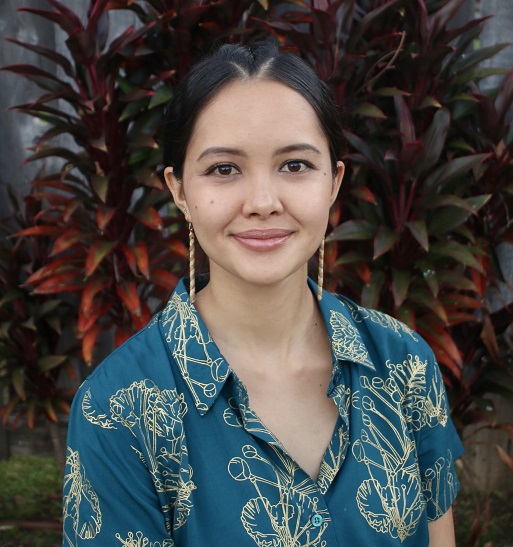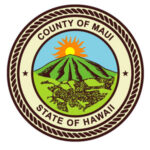The 8th annual Hawaii Energy Conference explored the energy transition in Hawaii with a focus on investments in people and projects.. The 2021 theme provided discussions on how to invest responsibly while designing energy projects that are resilient, financially viable, and respectful to the community.

The Molokai Clean Energy Hui (MCEH), an independent community-led group, is committed to help Molokai become a sustainable, clean energy community. MCEH coordinator Leilani Chow facilitates the group’s work on energy conservation, renewable energy, and clean transportation options for the island.
Chow, a Kanaka Maoli aloha ʻāina advocate, was raised on Molokai and has worked with Sustainable Molokai since 2010, first as a student volunteer, then as an intern, and most recently as the Hui Up Appliance Exchange Project Coordinator and Coordinator for the newly formed MCEH. She received her bachelor’s degree in Hawaiian Studies from the University of Hawaii at Mānoa in 2017 with a concentration in Kūkulu Aupuni, nation building.
“We want to help the community understand and engage effectively with the complicated processes and project proposals surrounding renewable energy,” said Chow. “We also offer early vetting and input to potential energy developers and other organizations to help them understand Molokai’s priorities, questions, and concerns regarding the impacts and benefits.”
Chow explained, “MCEH would like to see clean energy goals and achieve 100 percent renewable energy. However, we are very aloha ‘aina so there are things that we are not willing to compromise on. However, we are working on a way to meet in the middle to have a mutually beneficial project. Based on our size—approximately 7,500 people live on Molokai—we need only a couple of large scale projects to take care of our sustainability and energy resiliency needs.”
Chow added, “MCEH is currently working on a resilience plan with best ways to stabilize our grid. Once all the technical aspects are taken care of, and the community is brought into the conversation, it will be easier to find a developer who understands our needs. Building trust and respect between stakeholders within the context of equitable community development is vital.”
The 8th annual Hawaii Energy Conference explored the energy transition in Hawaii with a focus on investments in people and projects.. The 2021 theme provided discussions on how to invest responsibly while designing energy projects that are resilient, financially viable, and respectful to the community.
The Molokai Clean Energy Hui (MCEH), an independent community-led group, is committed to help Molokai become a sustainable, clean energy community. MCEH coordinator Leilani Chow facilitates the group’s work on energy conservation, renewable energy, and clean transportation options for the island.
Chow, a Kanaka Maoli aloha ʻāina advocate, was raised on Molokai and has worked with Sustainable Molokai since 2010, first as a student volunteer, then as an intern, and most recently as the Hui Up Appliance Exchange Project Coordinator and Coordinator for the newly formed MCEH. She received her bachelor’s degree in Hawaiian Studies from the University of Hawaii at Mānoa in 2017 with a concentration in Kūkulu Aupuni, nation building.
“We want to help the community understand and engage effectively with the complicated processes and project proposals surrounding renewable energy,” said Chow. “We also offer early vetting and input to potential energy developers and other organizations to help them understand Molokai’s priorities, questions, and concerns regarding the impacts and benefits.”
Chow explained, “MCEH would like to see clean energy goals and achieve 100 percent renewable energy. However, we are very aloha ‘aina so there are things that we are not willing to compromise on. However, we are working on a way to meet in the middle to have a mutually beneficial project. Based on our size—approximately 7,500 people live on Molokai—we need only a couple of large scale projects to take care of our sustainability and energy resiliency needs.”
Chow added, “MCEH is currently working on a resilience plan with best ways to stabilize our grid. Once all the technical aspects are taken care of, and the community is brought into the conversation, it will be easier to find a developer who understands our needs. Building trust and respect between stakeholders within the context of equitable community development is vital.”
Leilani Chow, Coordinator Molokai Clean Energy HuiThe Molokai community is continually active in wanting to find our energy future. This is such an exciting time!”
